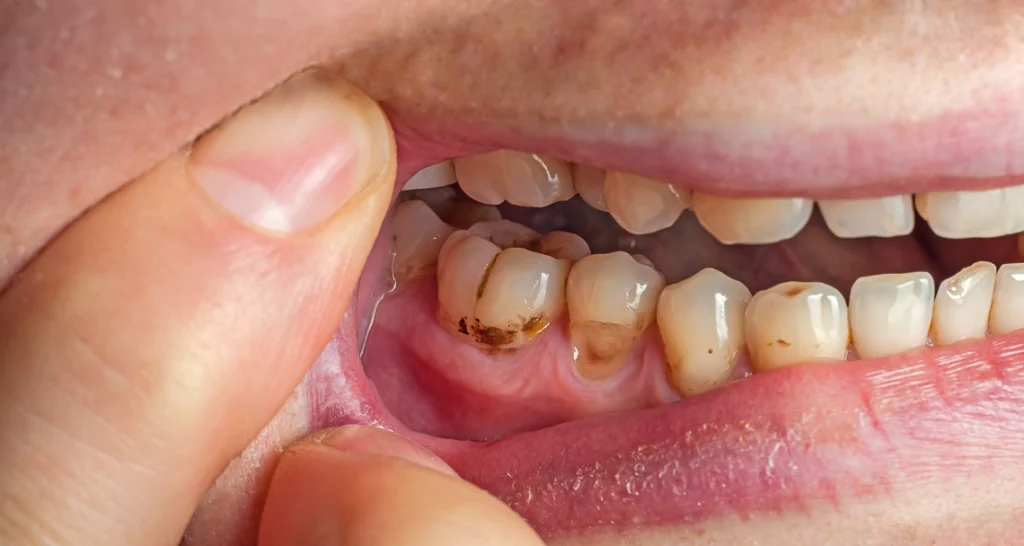
In June 2022, the creator of Squid Game revealed in an interview with Variety that six of his teeth fell out during production. However, in a later interview with BBC ahead of season 2’s premiere, Hwang Dong-hyuk clarified that he actually lost “eight or nine” teeth due to stress.
The link between stress and tooth loss requires a nuanced approach. Stress alone is unlikely to directly cause your teeth to fall out–it’s not as if you go to bed stressed and wake up toothless.
However, prolonged stress can trigger conditions that if left unmanaged, may lead to tooth loss.
Stress, in its essence, is the body’s response to demanding situations. It activates the release of hormones that prepare us for “fight or flight.
“These responses may seem beneficial in short bursts, but when they occur for a prolonged period, the negative impacts can be seen in many areas, including oral health. Dr Nikhil Nayar, a psychiatrist at Sharda Hospital explains, “Long-term stress can have a significant impact on oral health and frequently serve as a trigger for diseases like gum disease, tooth decay, and eventually tooth loss.”
One of the most common oral health issues that is linked to stress is bruxism—a condition in which you gnash or clench your teeth together. Over time, bruxism can wear down tooth enamel, making the tooth more susceptible to decay and damaged teeth. Teeth grinding mostly occurs while one is asleep, but it can also happen when you are awake.
When severe, bruxism can cause the teeth foundations to be loosened, which can result in tooth loss.
The American Psychological Association says that stress impairs your body’s ability to defend itself, increasing the risk of infections–including oral infections. Gingivitis, an early-stage gum disease, and periodontitis, a more severe gum infection, can develop when the immune system is compromised. Dr. Nayar adds, “This disease can cause tooth and bone loss as it worsens, particularly if treatment is not received.”
Stress can also lead to poor dietary habits. When people are under stress, they tend to consume more sugary snacks or drinks, exposing their teeth to acids and bacteria that cause cavities. Over time, frequent exposure to high-sugar foods can contribute to decay and, ultimately, tooth loss.
Practicing good oral hygiene, managing stress effectively, and visiting the dentist regularly are crucial in preventing stress-related dental issues. It is also important to note that while stress alone won’t directly cause tooth loss, its long-term effects on oral health can be severe. By taking proactive stress, individuals can protect both their teeth and overall well-being.
(The Guardian)


